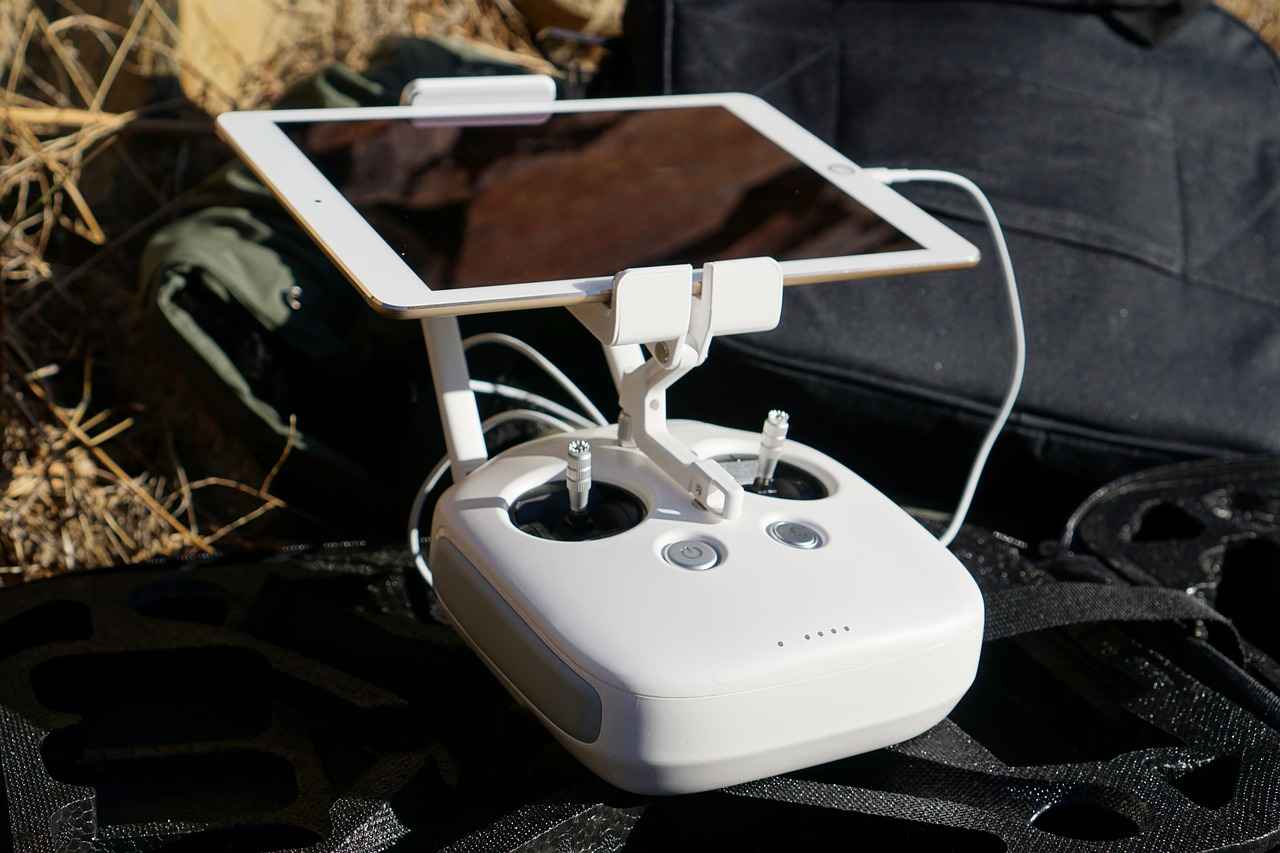This comprehensive guide explores effective strategies, platforms, and tips for securing remote part-time jobs, providing essential insights for job seekers looking to balance work and personal life.
Understanding Remote Part-Time Jobs
Remote part-time jobs are increasingly popular due to their flexibility and convenience. These roles allow individuals to work from home or any location while managing personal commitments. Understanding what defines remote part-time work is crucial for job seekers looking to navigate this landscape effectively.
Benefits of Remote Part-Time Work
- Flexibility: One of the primary advantages is the ability to create a work schedule that fits personal needs.
- Reduced Commuting Costs: Working remotely eliminates the need for daily travel, saving both time and money.
- Improved Work-Life Balance: These jobs allow individuals to balance professional responsibilities with personal life, enhancing overall satisfaction.
Where to Find Remote Part-Time Jobs
Numerous platforms cater specifically to remote job seekers. Here are some popular websites:
| Platform | Description |
|---|---|
| FlexJobs | A site dedicated to remote and flexible job listings. |
| Remote.co | Focuses solely on remote job opportunities across various sectors. |
| We Work Remotely | A popular job board for remote positions in tech and customer service. |
Crafting a Winning Resume for Remote Jobs
A tailored resume is essential for landing remote part-time positions. Highlighting relevant skills such as communication, time management, and self-motivation can set candidates apart from the competition.
Preparing for Remote Job Interviews
Virtual interviews often require different preparation. Ensure a reliable technical setup and familiarize yourself with common interview questions to increase your chances of success.
Conclusion: Embracing the Remote Work Revolution
The rise of remote part-time jobs presents exciting opportunities for professionals seeking flexibility. By leveraging the right strategies and platforms, job seekers can effectively navigate this evolving job market.

Understanding Remote Part-Time Jobs
Remote part-time jobs have emerged as a popular solution for individuals seeking to balance their professional and personal lives. These positions allow employees to work from the comfort of their homes, providing a level of flexibility that traditional jobs often lack. But what exactly defines remote part-time work, and what are its key benefits?
At its core, remote part-time work refers to employment that is not only flexible in terms of hours but also location-independent. Employees can choose to work from their homes, coffee shops, or anywhere with an internet connection, making it an appealing choice for many. This arrangement is particularly beneficial for students, parents, and those managing multiple commitments.
One of the most significant advantages of remote part-time jobs is the flexibility they offer. Workers can often set their own hours, allowing them to accommodate other responsibilities such as family care, education, or even pursuing hobbies. This autonomy leads to an improved work-life balance, which is increasingly valued in today’s fast-paced society.
Additionally, remote part-time positions can significantly reduce commuting costs. With no daily travel required, employees save both time and money, which can be redirected towards other important areas of life. This reduction in commuting also contributes to lower stress levels, promoting better mental health and productivity.
Moreover, remote part-time jobs often provide opportunities to explore diverse fields and industries. Workers can take on projects that align with their interests and skills, which can enhance their professional development and expand their networks. Such exposure is invaluable in today’s competitive job market.
In conclusion, remote part-time jobs represent a modern approach to work that prioritizes flexibility and personal well-being. As more individuals seek to balance their careers with other life commitments, understanding the dynamics of remote part-time work becomes essential.

Benefits of Remote Part-Time Work
In today’s fast-paced world, remote part-time work has emerged as a viable option for many individuals seeking to balance their professional and personal lives. This section delves into the various advantages that make remote part-time positions increasingly popular among diverse demographics.
- Flexibility in Scheduling: One of the most significant benefits of remote part-time jobs is the ability to create a work schedule that fits one’s lifestyle. This flexibility enables individuals to attend to personal commitments, such as family obligations or educational pursuits, while still fulfilling their professional responsibilities.
- Reduced Commuting Costs: Working remotely eliminates the need for daily commutes, leading to substantial savings on transportation costs. Not only does this save money, but it also reduces the stress and time associated with commuting, allowing employees to focus more on their tasks.
- Improved Work-Life Balance: Remote work facilitates a better balance between work and personal life. Employees can allocate time for leisure activities, health, and family, promoting overall well-being and job satisfaction.
- Access to a Wider Job Market: Remote part-time positions open doors to opportunities that may not be available locally. Job seekers can apply for roles across different regions or even countries, increasing their chances of finding a suitable position.
- Opportunity for Skill Development: Many remote part-time jobs allow individuals to explore various fields, enhancing their skill sets. This exposure can lead to personal growth and increased employability in the long run.
- Enhanced Productivity: Studies have shown that remote workers often experience higher productivity levels. The comfortable work environment can lead to fewer distractions and a greater focus on tasks.
In conclusion, the benefits of remote part-time work are manifold, making it an attractive option for a wide array of job seekers. As the demand for flexible work arrangements continues to grow, understanding these advantages can help individuals make informed career choices.
Flexibility and Work-Life Balance
One of the most significant advantages of remote part-time jobs is the unparalleled flexibility they offer. Unlike traditional office roles, remote positions allow employees to tailor their work schedules to fit their unique lifestyles and personal responsibilities. This flexibility is not just a luxury; it is essential for many individuals striving to balance work with family, education, or other commitments.
With remote part-time jobs, individuals can choose to work during their most productive hours. For instance, a parent may opt to work early in the morning or late at night, while a student might prefer to work around their class schedule. This adaptability can lead to increased job satisfaction and overall well-being, as employees can align their work with their peak performance times.
Moreover, the ability to work from anywhere significantly reduces the time and stress associated with commuting. Eliminating the daily grind of traffic or crowded public transport not only saves precious time but also contributes to a healthier work-life balance. Employees can utilize this saved time for personal activities, whether it’s spending time with family, exercising, or pursuing hobbies.
Additionally, remote work can foster a more inclusive environment for those with disabilities or health issues, allowing them to work comfortably from home. This inclusivity can lead to a more diverse workforce, where talent is prioritized over geographical location.
In conclusion, the flexibility offered by remote part-time jobs is a game-changer for many individuals. It enables them to create a harmonious balance between their professional and personal lives, ultimately leading to higher productivity and job satisfaction.
Reduced Commuting Stress
In today’s fast-paced world, the daily commute can be a significant source of stress and frustration for many individuals. By eliminating the need to travel to a physical workplace, remote work offers a transformative solution that positively impacts both mental health and productivity.
- Time Savings: One of the most immediate benefits of working remotely is the time saved by not commuting. Many individuals spend hours each week stuck in traffic or on public transportation. This time can now be redirected towards more productive activities, such as family time, hobbies, or even additional work.
- Cost Reduction: Commuting often entails significant expenses, including fuel costs, public transport fares, and wear and tear on vehicles. By working from home, employees can save money and allocate those funds toward other important areas of their lives.
- Enhanced Mental Well-being: The stress associated with commuting can lead to increased anxiety and fatigue. By reducing this burden, remote work can foster a more positive mental state, allowing individuals to start their workday feeling refreshed and focused.
- Increased Productivity: Without the distractions and delays of commuting, remote workers often find that they can concentrate better on their tasks. This can lead to higher levels of productivity and job satisfaction, as employees can create an environment that suits their working style.
Moreover, the flexibility of remote work allows individuals to structure their days in a way that maximizes their energy levels. For example, some may choose to start their work earlier, while others may prefer to work later in the day. This adaptability can lead to an overall improvement in work-life balance.
In conclusion, the shift towards remote work not only eliminates the stress of commuting but also offers a myriad of benefits that contribute to enhanced mental health and increased productivity. As more individuals and companies recognize these advantages, the future of work seems to be heading towards a more flexible and fulfilling direction.
Opportunity for Diverse Work
Remote part-time jobs have become a gateway for individuals to explore a wide array of fields and industries. These positions not only offer flexibility but also present unique opportunities for professional growth and skill diversification.
One of the most significant advantages of remote part-time work is the ability to experiment with various roles across different sectors. This exploration can lead to the discovery of new interests and strengths that individuals may not have been aware of previously. For instance, a person with a background in marketing may find themselves drawn to project management or graphic design, thanks to the diverse opportunities available in the remote job market.
Additionally, engaging in remote part-time roles allows individuals to build their professional networks across multiple industries. Connecting with colleagues and clients from different backgrounds can enhance one’s understanding of various business practices and trends. This networking can be particularly beneficial for those looking to transition into a new field or advance in their current career.
Moreover, remote work often encourages collaboration with individuals from around the globe. This exposure to different cultures and work styles can significantly enrich one’s professional experience, fostering a more global perspective on work and collaboration.
To capitalize on these opportunities, job seekers should actively seek out remote positions that challenge them and push them out of their comfort zones. By doing so, they can not only expand their skill sets but also position themselves as versatile candidates in an increasingly competitive job market.
In conclusion, the flexibility and diversity offered by remote part-time jobs can lead to significant personal and professional development. Embracing these roles can open doors to new possibilities, making it an exciting time for individuals seeking to enhance their careers.
Financial Benefits of Remote Work
In today’s fast-paced world, working remotely has become an increasingly viable option for many individuals. One of the most compelling reasons to consider remote work is the potential for significant financial savings. This section will explore how reduced expenses and potential earnings contribute to overall financial well-being.
- Reduced Commuting Costs: One of the most immediate financial benefits of remote work is the elimination of daily commuting expenses. By working from home, individuals save on fuel, public transport fares, and wear-and-tear on their vehicles.
- Lower Living Expenses: Remote workers often have the flexibility to choose where they live, allowing them to relocate to areas with a lower cost of living. This can lead to substantial savings on housing, groceries, and other daily expenses.
- Tax Deductions: In some regions, remote workers can take advantage of tax deductions related to their home office setup, including utility bills and internet costs, further enhancing their financial situation.
- Increased Earning Potential: Many remote jobs offer competitive salaries, and the flexibility to take on multiple part-time roles can lead to increased overall income. This diversification not only boosts earnings but also provides a safety net against job loss.
Moreover, remote work can enhance productivity, as employees often find they can accomplish more in less time without the distractions commonly found in traditional office environments. This increased efficiency can lead to better performance and potential bonuses or raises.
In conclusion, the financial benefits of remote work are substantial. By reducing commuting and living costs, leveraging tax deductions, and increasing earning potential, individuals can significantly improve their financial well-being while enjoying the flexibility that remote work provides.

Where to Find Remote Part-Time Jobs
In today’s digital landscape, the quest for remote part-time jobs has never been easier. Numerous platforms cater specifically to job seekers looking for flexible work opportunities. Below is a comprehensive overview of the best websites and resources to help you secure part-time remote positions.
- Job Boards Specializing in Remote Work
- FlexJobs – A subscription-based service that curates remote job listings across various industries, ensuring quality and legitimacy.
- Remote.co – Features a variety of remote job listings, along with resources for remote work best practices.
- We Work Remotely – One of the largest remote work communities, offering a plethora of job categories.
- Remote OK – A popular site that aggregates remote job listings from various sources, making it easy to find opportunities.
- Freelance Platforms
- Networking and Social Media
- LinkedIn – Utilize this professional networking site to connect with potential employers and discover job postings.
- Facebook Groups – Join groups dedicated to remote work where members share job leads and opportunities.
By leveraging these platforms, you can significantly enhance your chances of finding the ideal remote part-time job that fits your lifestyle and professional goals. Remember to tailor your applications to highlight your skills and experiences relevant to remote work.
Job Boards and Websites
play a crucial role in the search for remote part-time employment. As the demand for flexible work arrangements continues to rise, several specialized platforms have emerged to cater exclusively to remote job seekers. Below, we explore some of the most popular job boards that can help you find remote part-time listings.
- FlexJobs: This well-known platform specializes in remote, part-time, freelance, and flexible jobs across various industries. FlexJobs screens each posting to ensure that job seekers find legitimate opportunities.
- We Work Remotely: A popular site for remote job listings, We Work Remotely features positions in fields such as customer support, programming, and marketing. The user-friendly interface makes it easy to navigate and find suitable roles.
- Remote.co: This platform not only lists remote jobs but also provides resources and articles about remote work culture. It features a variety of job categories, making it a valuable resource for job seekers.
- AngelList: Ideal for those interested in startups, AngelList allows users to find remote opportunities in new and innovative companies. Job seekers can create profiles to attract potential employers.
- SimplyHired: A general job search engine that includes a filter for remote work, SimplyHired aggregates listings from various sources, making it a convenient option for job seekers.
- Upwork: While primarily known for freelance work, Upwork offers numerous part-time remote job opportunities across various industries. Users can create profiles showcasing their skills and bid on projects that interest them.
By utilizing these specialized job boards, job seekers can significantly enhance their chances of finding the right remote part-time position that aligns with their skills and lifestyle. Remember to tailor your applications to each role to stand out in this competitive job market.
Networking and Social Media
In today’s digital age, leveraging professional networks and social media is essential for enhancing job prospects, especially in the competitive landscape of remote part-time jobs. This section explores effective strategies for utilizing platforms like LinkedIn to connect with potential employers and expand your professional circle.
Building a Strong LinkedIn Profile
Your LinkedIn profile serves as a digital resume and a networking tool. To maximize its potential:
- Use a Professional Photo: A clear, professional headshot can make a strong first impression.
- Craft a Compelling Headline: Your headline should reflect your current role and aspirations, incorporating relevant keywords.
- Write a Strong Summary: Summarize your skills, experiences, and career goals in a concise manner, highlighting your suitability for remote roles.
Engaging with Your Network
Once your profile is optimized, it’s time to actively engage:
- Connect with Industry Professionals: Send personalized connection requests to individuals in your field.
- Join Relevant Groups: Participate in groups related to your industry to share insights and seek advice.
- Share Valuable Content: Regularly post articles, insights, or updates that showcase your expertise and interests.
Utilizing Job Search Features
LinkedIn offers various features to aid your job search:
- Job Alerts: Set up job alerts for remote part-time positions that match your skills and interests.
- Easy Apply: Use the Easy Apply feature for quick applications to relevant job postings.
- Network Referrals: Reach out to connections at companies you’re interested in for potential referrals.
Conclusion
In conclusion, effectively utilizing networking and social media platforms like LinkedIn can greatly enhance your job prospects in the remote part-time job market. By building a robust profile, engaging with your network, and leveraging job search features, you can position yourself as a desirable candidate and open doors to exciting opportunities.

Crafting a Winning Resume for Remote Jobs
A well-crafted resume is essential for landing remote part-time jobs. In today’s competitive job market, it’s crucial to tailor your resume to highlight the skills and experiences that are most relevant to remote work. This section provides valuable tips and strategies to help you create an impactful resume that stands out to potential employers.
Understanding Remote Work Requirements
Remote jobs often require specific skills that differ from traditional roles. Focus on showcasing your self-discipline, communication skills, and proficiency with remote collaboration tools. These attributes are highly valued in remote work environments.
Highlighting Relevant Skills
- Technical Skills: Emphasize your ability to use software and tools that facilitate remote work, such as video conferencing platforms and project management software.
- Soft Skills: Highlight skills like adaptability, time management, and problem-solving, which are critical for remote positions.
- Remote Experience: If you have prior remote work experience, make sure to include it prominently in your resume.
Formatting for Clarity and Impact
Choose a clean and professional format to enhance readability. Use bullet points to organize information and keep descriptions concise. A well-structured resume helps hiring managers quickly grasp your qualifications.
Tailoring Your Resume for Each Job Application
Take the time to customize your resume for each remote job application. Analyze the job description and incorporate relevant keywords and phrases. This practice not only demonstrates your attention to detail but also helps your resume pass through Applicant Tracking Systems (ATS).
Conclusion
In conclusion, crafting a winning resume for remote jobs requires a strategic approach. By highlighting relevant skills, using a clear format, and tailoring your resume for each application, you can significantly increase your chances of landing that coveted remote part-time position. Remember, your resume is your first impression—make it count!
Highlighting Remote Work Skills
In today’s evolving job market, remote work has become increasingly prevalent, making it essential for job seekers to showcase specific skills that are highly valued by employers. When applying for remote part-time positions, it is crucial to emphasize the following skills:
- Effective Communication: Clear and concise communication is vital in a remote environment. Employers look for candidates who can articulate their thoughts and ideas through various channels, including email, chat, and video calls.
- Self-Motivation: Remote work requires a high level of self-discipline. Highlight your ability to manage your time effectively, stay focused on tasks, and meet deadlines without direct supervision.
- Technical Proficiency: Familiarity with digital tools and platforms is essential. Mention your experience with project management software, video conferencing tools, and collaboration platforms to show that you can navigate the remote work landscape.
- Problem-Solving Skills: Remote work often presents unique challenges. Showcase your ability to think critically and develop solutions independently, which is highly valued in a remote setting.
- Adaptability: The ability to adjust to changing circumstances is crucial in a remote role. Employers appreciate candidates who can embrace new technologies and workflows as needed.
- Team Collaboration: Even in remote settings, teamwork is essential. Highlight your experience in collaborating with diverse teams and your ability to contribute positively to group dynamics.
By emphasizing these skills in your resume and during interviews, you’ll position yourself as a strong candidate for remote part-time jobs. Tailoring your application to reflect these competencies can significantly enhance your chances of success.
Formatting for Clarity and Impact
An effective resume format is essential for enhancing both readability and impact. When hiring managers sift through numerous applications, a well-structured resume can make a significant difference in how your qualifications are perceived. This section provides essential guidelines on how to structure your resume to ensure it captures attention and conveys your strengths effectively.
- Choose the Right Layout: Opt for a clean, professional layout that allows for easy navigation. Common formats include chronological, functional, and hybrid. Select one that best showcases your experience and skills.
- Use Clear Headings: Organize your resume with clear, distinct headings. This helps hiring managers quickly locate the information they need. Consider using bold or larger font sizes for headings.
- Bullet Points for Achievements: Rather than lengthy paragraphs, utilize bullet points to list your achievements and responsibilities. This format is easier to read and allows key points to stand out.
- Consistent Font and Size: Maintain a consistent font style and size throughout your resume. A standard font like Arial or Times New Roman in 10-12 point size is recommended for a professional appearance.
- Incorporate White Space: Adequate white space can make your resume more visually appealing. Avoid overcrowding your document, as this can overwhelm the reader.
- Tailor Content for Each Job: Customize your resume for each application by emphasizing relevant experiences and skills that align with the job description. This shows that you have taken the time to understand the role.
By following these guidelines, you can create a resume that not only stands out but also effectively communicates your qualifications. Remember, the goal is to make it as easy as possible for hiring managers to see why you are the right fit for the position.

Preparing for Remote Job Interviews
Interviews for remote positions can differ significantly from traditional in-person interviews. As the job market evolves, understanding how to navigate these virtual interviews is crucial for job seekers. This section will provide you with essential insights on how to prepare effectively and what to expect during the interview process.
Understanding the Virtual Interview Environment
Virtual interviews typically take place via video conferencing platforms such as Zoom, Skype, or Google Meet. Familiarizing yourself with the platform beforehand can help ease any technical anxieties. Make sure to:
- Test your internet connection for stability.
- Ensure your webcam and microphone are functioning properly.
- Familiarize yourself with the interface of the chosen platform.
Creating a Professional Setting
The environment in which you conduct your interview plays a vital role in making a good impression. Consider the following:
- Choose a quiet location with minimal distractions.
- Ensure good lighting, preferably natural light, to enhance visibility.
- Keep your background tidy and professional.
Common Interview Questions for Remote Roles
Remote job interviews often focus on skills relevant to virtual work. Be prepared to answer questions such as:
- How do you manage your time and prioritize tasks when working remotely?
- What tools do you use for communication and collaboration?
- Can you describe a challenge you faced while working remotely and how you overcame it?
Demonstrating Remote Work Skills
During the interview, it’s essential to showcase your ability to work independently and effectively. Highlight skills such as:
- Self-discipline and motivation.
- Strong communication skills.
- Proficiency with remote work tools.
Conclusion
Preparing for remote job interviews requires a unique approach, focusing on technical readiness, environment, and relevant skills. By following these guidelines, you can enhance your chances of success in securing a remote position.
Technical Setup for Virtual Interviews
is crucial in today’s remote work landscape. As more companies shift to online hiring processes, ensuring a reliable technical setup becomes essential for candidates aiming to make a positive impression during interviews. This section outlines the necessary tools and preparations that can help avoid technical issues and enhance the overall interview experience.
- Reliable Internet Connection: A stable internet connection is the backbone of any virtual interview. Candidates should ensure a minimum speed of 25 Mbps for seamless video streaming. Conduct a speed test prior to the interview to confirm your connection is up to par.
- Quality Audio and Video Equipment: Invest in a good quality webcam and microphone. Clear audio and video can significantly improve communication. Test these devices ahead of time to troubleshoot any issues.
- Appropriate Software: Familiarize yourself with the video conferencing platform that will be used for the interview, such as Zoom, Microsoft Teams, or Google Meet. Ensure that you have the latest version of the software installed and that you know how to use its features, such as screen sharing and chat functions.
- Quiet and Professional Environment: Choose a distraction-free location for the interview. A tidy background and good lighting can create a professional atmosphere. Consider using a virtual background if your surroundings are not suitable.
- Preparation and Practice: Conduct a mock interview with a friend or family member to practice your responses and get comfortable with the technology. This can help identify any potential technical issues before the actual interview.
By taking these steps, candidates can minimize the risk of technical difficulties and focus on showcasing their skills and qualifications. A well-prepared technical setup not only reflects professionalism but also sets the stage for a successful interview experience.
Common Interview Questions for Remote Roles
Preparing for a remote job interview can feel daunting, especially when you’re unsure of what to expect. Understanding the types of questions commonly asked in remote job interviews can significantly enhance your confidence and performance. This section provides an overview of typical questions, along with tips on how to answer them effectively.
- Can you describe your home office setup?
Employers want to ensure you have a productive workspace. Highlight your dedicated workspace, necessary equipment, and how your environment minimizes distractions.
- How do you manage your time while working remotely?
Discuss your time management strategies, such as using tools like calendars or task management apps, and emphasize your ability to meet deadlines.
- What tools do you use for communication and collaboration?
Familiarity with tools like Slack, Trello, or Zoom is crucial. Mention your proficiency in these tools and how they facilitate teamwork.
- How do you handle challenges or conflicts in a remote setting?
Employers seek candidates who can resolve issues independently. Share a specific example of a past conflict and how you addressed it constructively.
- Why are you interested in this remote position?
Demonstrate your enthusiasm for the role and the company. Connect your skills and experiences to the job description, showing why you’re a perfect fit.
By preparing answers to these common questions, you can approach your remote job interview with confidence. Remember to practice your responses aloud, ensuring you convey your thoughts clearly and effectively.
In conclusion, the key to succeeding in remote job interviews lies in understanding what employers are looking for and being able to articulate your qualifications and experiences effectively. With the right preparation, you can showcase your skills and stand out as a strong candidate.

Tips for Succeeding in Remote Part-Time Jobs
Once you secure a remote part-time position, it’s essential to implement effective strategies to thrive in your role. Here are some practical tips to enhance your productivity and communication while working remotely:
- Establish a Dedicated Workspace: Create a designated area in your home where you can focus solely on work. This helps to minimize distractions and signals to others that you are in work mode.
- Set a Consistent Schedule: Even in a flexible environment, having a regular work schedule can help you maintain a routine. This consistency boosts productivity and helps you balance work and personal commitments.
- Utilize Project Management Tools: Leverage tools like Trello, Asana, or Slack to keep track of tasks and deadlines. These platforms facilitate collaboration and ensure everyone is on the same page.
- Prioritize Communication: Regularly check in with your team through video calls, chats, or emails. Clear and frequent communication fosters teamwork and helps resolve issues promptly.
- Take Breaks: Schedule short breaks throughout your workday to recharge. Stepping away from your desk can improve focus and prevent burnout.
- Set Boundaries: Clearly communicate your availability to colleagues and family members. This helps to minimize interruptions and allows you to concentrate on your work.
- Stay Organized: Keep your digital files and documents organized. Use folders and naming conventions that make it easy to find what you need quickly.
- Seek Feedback: Regularly ask for feedback from your supervisor or colleagues. Constructive criticism can help you improve your work and adapt to the remote environment.
By implementing these strategies, you can enhance your performance in a remote part-time role, ensuring that you remain productive and engaged while enjoying the flexibility that remote work offers.
Effective Communication Strategies
Effective communication is crucial in remote work environments, where team members may be geographically dispersed. To foster collaboration and maintain productivity, it’s essential to adopt strategies that enhance connectivity with colleagues and supervisors. Below are some best practices for successful communication in remote settings.
- Utilize Multiple Communication Tools: Relying on a single platform can lead to missed messages and misunderstandings. Use a combination of emails, instant messaging apps, and video conferencing tools to ensure everyone stays informed.
- Establish Clear Communication Guidelines: Set expectations regarding response times, preferred communication channels, and availability. This clarity helps prevent confusion and ensures that everyone is on the same page.
- Schedule Regular Check-Ins: Frequent meetings, whether daily or weekly, can help maintain relationships and keep projects on track. These check-ins provide opportunities for feedback and discussion, allowing team members to voice concerns or share updates.
- Encourage Open Dialogue: Create an environment where team members feel comfortable sharing ideas and feedback. Promoting a culture of openness can lead to innovative solutions and stronger team dynamics.
- Be Mindful of Time Zones: When working with a global team, be aware of time zone differences. Schedule meetings at convenient times for all participants to ensure maximum attendance and engagement.
- Use Visual Aids: In virtual meetings, utilize screen sharing and visual presentations to enhance understanding. Visual aids can help clarify complex ideas and keep team members engaged.
By implementing these strategies, remote teams can improve their communication, leading to enhanced collaboration and productivity. Remember, effective communication is not just about conveying information—it’s about building relationships and fostering a sense of community, even from a distance.
Time Management Techniques
Managing time effectively is crucial for remote workers, as it directly impacts productivity and overall job satisfaction. In this section, we will explore various techniques and tools that can help individuals stay organized and maintain a high level of productivity while working from home.
- Prioritization of Tasks: One of the most effective techniques is to prioritize tasks using methods such as the Eisenhower Matrix or the ABC method. By categorizing tasks based on urgency and importance, remote workers can focus on what truly matters.
- Time Blocking: This technique involves scheduling specific blocks of time for different tasks throughout the day. By allocating dedicated time slots, individuals can minimize distractions and enhance focus during their work periods.
- Pomodoro Technique: This popular method encourages working in short bursts of focused activity, typically 25 minutes, followed by a 5-minute break. This cycle helps maintain high energy levels and reduces burnout.
- Utilization of Digital Tools: Leveraging tools like Trello, Asana, or Todoist can significantly improve task management. These platforms offer features for tracking progress, setting deadlines, and collaborating with team members.
- Setting Clear Goals: Establishing clear, measurable goals can guide remote workers in maintaining focus and direction. Using the SMART criteria (Specific, Measurable, Achievable, Relevant, Time-bound) can help in formulating effective objectives.
- Regular Breaks and Downtime: It is essential to incorporate regular breaks into the work schedule. Short breaks can help refresh the mind and improve concentration, ultimately leading to better productivity.
By implementing these time management techniques, remote workers can enhance their efficiency and ensure that they meet their professional responsibilities while enjoying the flexibility that remote work offers.

Conclusion: Embracing the Remote Work Revolution
The landscape of employment is evolving rapidly, and the rise of remote part-time jobs is a testament to this transformation. For many professionals, these roles offer a unique blend of flexibility and opportunity, making them an attractive option in today’s fast-paced world. As we conclude our exploration of this exciting trend, it’s essential to reflect on the myriad of possibilities that remote work presents.
Remote part-time jobs allow individuals to tailor their work schedules around personal commitments, providing a level of work-life balance that traditional jobs often lack. Whether you’re a parent managing childcare, a student balancing studies, or someone pursuing a passion project, these positions empower you to take control of your time and priorities.
Moreover, the variety of roles available in the remote job market is expanding. From customer service to content creation, and even specialized fields like data analysis, there is a wealth of opportunities waiting to be explored. This diversity not only enhances skill development but also opens doors to networking with professionals across different industries.
As you consider diving into the realm of remote part-time work, remember that taking charge of your career means embracing change and being proactive. Utilize online platforms, engage with your professional network, and continuously seek to enhance your skills. The flexibility that comes with remote work is not just about where you work; it’s about how you choose to shape your professional journey.
In conclusion, the rise of remote part-time jobs is not just a trend; it’s a revolution in how we think about work. By seizing these opportunities, you can create a fulfilling career that aligns with your lifestyle and aspirations. So, take the leap, explore your options, and embrace the future of work with confidence!
Frequently Asked Questions
- What are remote part-time jobs?
Remote part-time jobs are positions that allow you to work from anywhere, typically offering flexible hours. They enable you to juggle professional responsibilities while still managing personal commitments, making them ideal for many job seekers.
- How can I find remote part-time jobs?
You can find remote part-time jobs through various job boards like Remote.co, FlexJobs, and We Work Remotely. Additionally, leveraging social media platforms like LinkedIn can help you connect with potential employers and discover job opportunities.
- What skills should I highlight on my resume for remote jobs?
When applying for remote jobs, emphasize skills such as communication, time management, and self-discipline. These skills are crucial for success in a remote work environment, as they demonstrate your ability to work independently and stay organized.
- How do remote job interviews differ from traditional ones?
Remote job interviews often focus more on your technical setup and ability to communicate effectively through digital platforms. Expect questions about your remote work experience and how you handle challenges in a virtual environment.
- What tips can help me succeed in a remote part-time job?
To succeed in a remote part-time job, prioritize effective communication and establish a routine that promotes productivity. Utilize tools like project management software to stay organized and maintain regular check-ins with your team.
